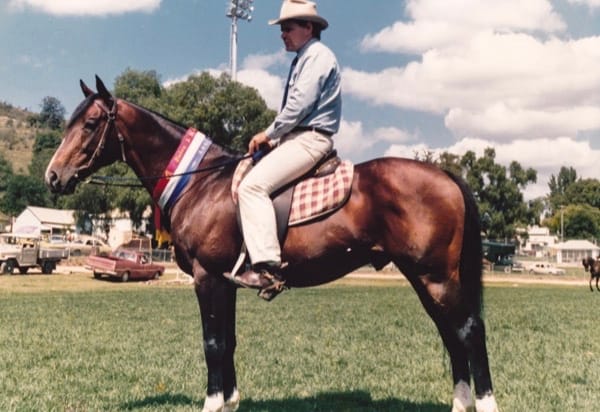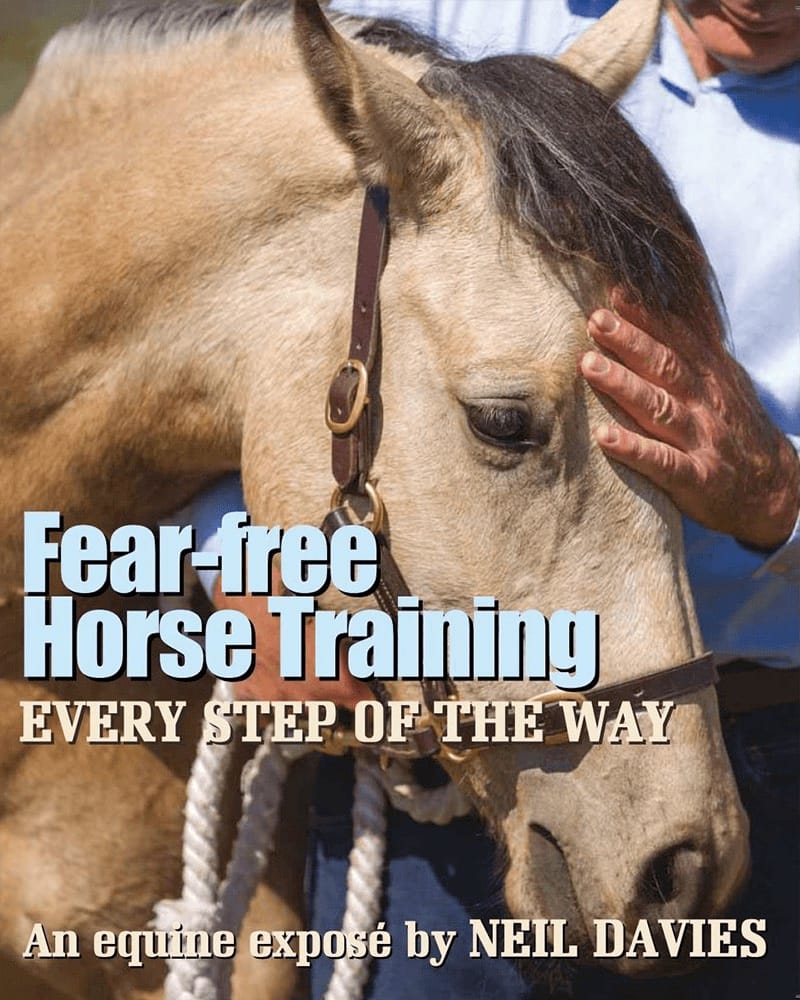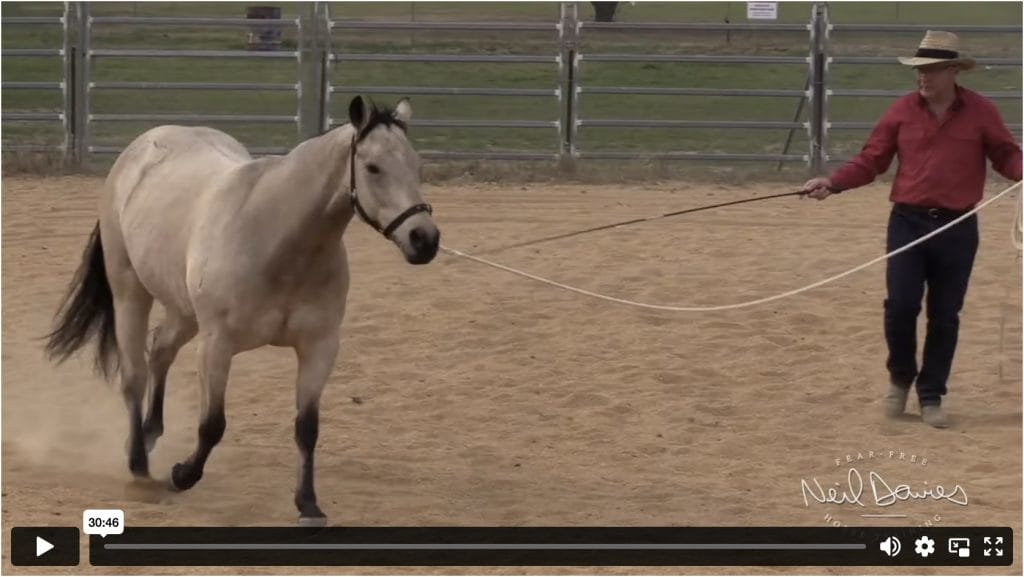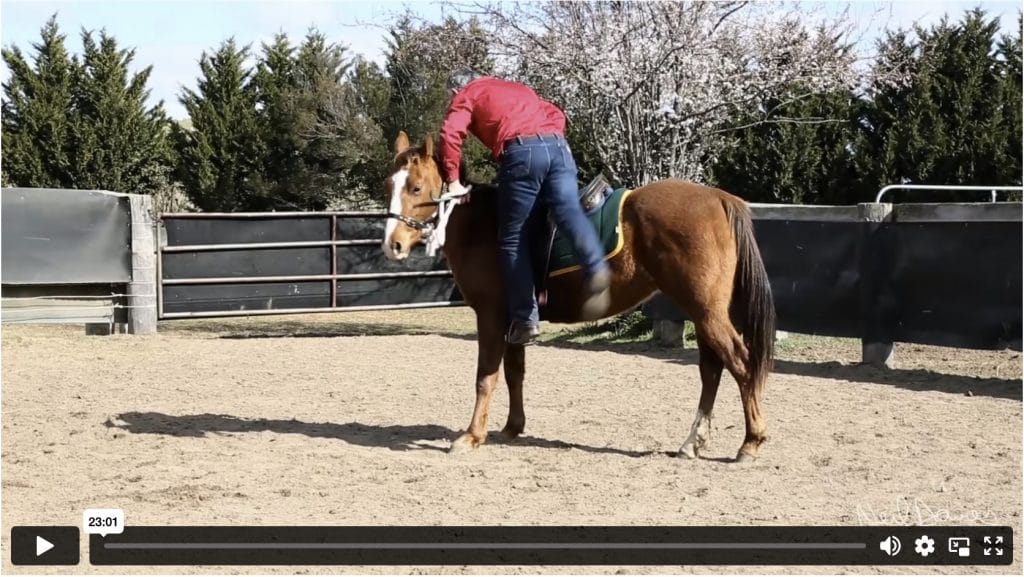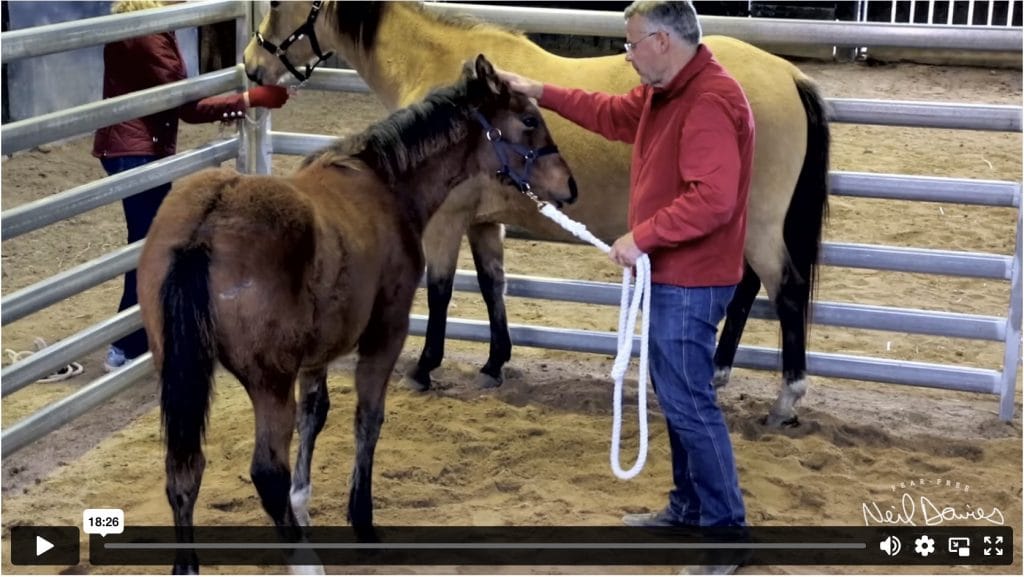When I trained horses for a living, I rode between eight and fifteen horses every day.
Each horse was at a different stage of training and each horse reacted differently on any particular day.
Half the time I couldn’t even remember where I was up to with them.
It didn’t matter because each horse soon let me know what I needed to work on that day.
Perhaps a young horse was trotting around with me and the saddle and going well.
I’d expect to canter him for the first time next lesson. However, when I rode the horse next day, he didn’t go as well and this showed me that he wasn’t ready to be cantered after all.
So my canter plan had to wait.
I’d spend more time trotting around and see how things went.
There was always tomorrow.
Sometimes my plans changed for the better.
Another horse mightn’t have been going as well and I’d expect problems when I rode him next lesson.
Horses like this often surprised me and went much better the following day.
Whether I’m catching a foal for the first time or riding an educated horse that I’ve had for years,
I don’t set out to reach a certain goal in any lesson.
I don’t plan the lesson.
Every interaction with every horse is different and every lesson is different.
Though I have specific goals every time I work with a horse, I don’t care if they happen today, tomorrow or next week.
The horse will always let me know what the day’s lesson should be.
You may start a lesson thinking that you want to work on canter circles.
Your horse however, may start the lesson thinking that he wants to run and play.
This means that your canter circle plan has to go on the back burner.
You mustn’t punish your horse for being fresh and feeling frisky.
And don’t expect any horse to concentrate when he feels this way.
You simply have to give your horse some exercise to overcome his excess energy.
Though you planned to improve your canter circles, you might have to spend the lesson trotting and cantering your horse to overcome his exuberance.
Improving canter circles can easily wait for another day.
Always be careful when you teach something new.
It’s very easy to overdo your training.
Perhaps you’ve been working day after day on half-pass or some particular movement.
If your horse isn’t responding as you wish, don’t keep pushing on.
Don’t think you need to do more half-pass.
The best thing to do is to forget about half-pass for a while.
Work on something else and let your horse relax.
Just because you plan to ride a perfect half-pass doesn’t mean that you should work on it day after day.
Your plans must always be guided by the way your horse reacts.
Remember, he doesn’t know what your plans are and he doesn’t automatically know what you want him to do.
Your horse may not understand as much as you think he does.
It’s always up to you to read your horse, teach him carefully and adjust your plans every time you work with him.
Always remember – Aim for perfection but be happy with improvement.
Learn more with my book

